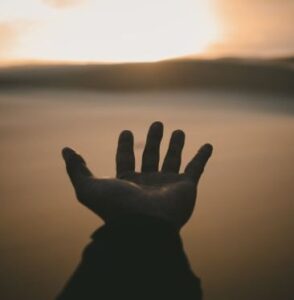“But let justice roll down like waters, and righteousness like an ever-flowing stream.” (Amos 5:24 ESV)
Ethics is a river.
- I choose to charge my clients equitably – drip.
- I choose to treat my clients fairly – drip.
- I choose to act professionally when I carry the label coach – drip.
Soon those drips form a puddle which flows into the ecosystem of correct and honorable behavior. It joins with the honorable behaviors of other coaches to flow into a stream of ethical righteousness.
I was talking to some friends this week about ethics being a fluid subject. Soon the idea formed in my head of ethics flowing like a river. It comes from a source higher up. The streams are fed by snow and rain and all things water; blizzards and storms, hail and hurricanes, drizzles and downpours. Eventually our river of Christian coaching ethics flows into the bigger stream of secular coaching ethics and then into other professional streams; merging with political, social and even religious ethics. Ultimately it dumps into the sea of humanity and is no longer distinguishable. Ethics is a river.
The river is never the same. Every time you look at it, what you see is different. The appearance might be similar. The properties of the river might be very much like those which were there yesterday. Yet the river itself is not the same. Water has flowed through it and has changed it. Every ethical choice we make adds to and subtracts from the river. A person in Nevada might drink with a different cup than a coach from Colorado, yet they can drink from the same river. We need to see our contribution as a small yet essential contribution to the whole. Collectively our ethics provide water for the plants and animals that sustain and enrich our lives. Ethics flows out of each of us.
From the sea, ethics returns to the sky and falls back on our heads. We get what we give. In some places ethics needs to be reined in with banks, barriers, dikes, levy’s, and dams. The human need in such places is so tight that loose ethics would be dangerous. In other places the river of ethics flows where it will. Human intervention would thwart the natural flow of things. Ethics is subject to the rules of the wilderness.
Certainly, we set up boundaries to keep the ethics contained. Rules are important markers for signaling when we are out of bounds – when our ethics has exceeded its banks. Without such barriers, the water of the river would flow all over the place. All low-lying areas would be flooded. There would be no place to go to find an example of good ethics because the water would be scattered.
If you took your canoe on the river of ethics, you would find it mostly peaceful and passive. However, sometimes it can be fast and furious. With time, you learn to see the hazards before you meet them head on. You learn to be prepared to negotiate the upcoming traps and turbulence. A beginning coach should seek a good river guide. Someone to be there with you as you confront the unknown. Many have gone before you. There are many ways to be prepared to meet the challenge. Perhaps you might dump into the river. While this can be cold and shocking, it is seldom fatal. Being prepared with your river guide (the Code of Ethics), your life vest (prayer), and your keen sense of right and wrong (morality) will help you through this. If you turn over, then just swim to the side. Go find your boat. Get back in it and move on. With Jesus’s help, you can even walk on the water (Matthew 14).
Michael J. Marx, MBA, EdD, PCC, CPCC.
About the Author:
Michael is a Certified Professional Christian Coach with CCNI specializing in business coaching and corporate consultation. Dr. Marx currently serves as the leader of the ICF ‘Global Community of Practice on Ethics.’ He also serves on their Independent Review Board and on the Ethics Code Review Team. Additionally, he is immediate past-president of Christian Coaches Network International and the author of Ethics and Risk Management for Christian Coaches (2016).




